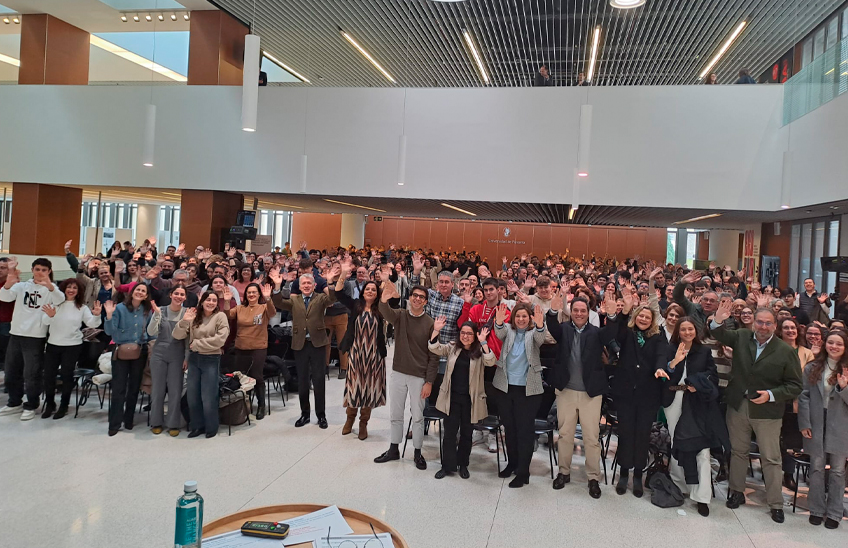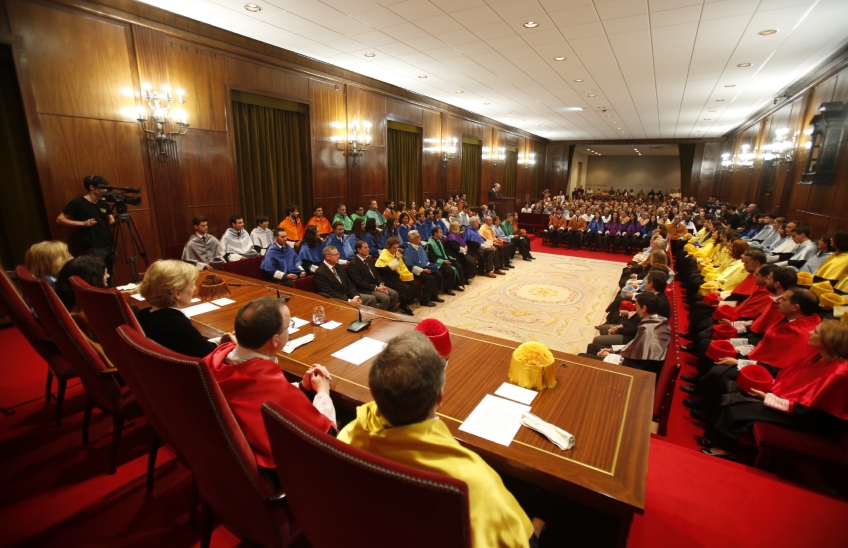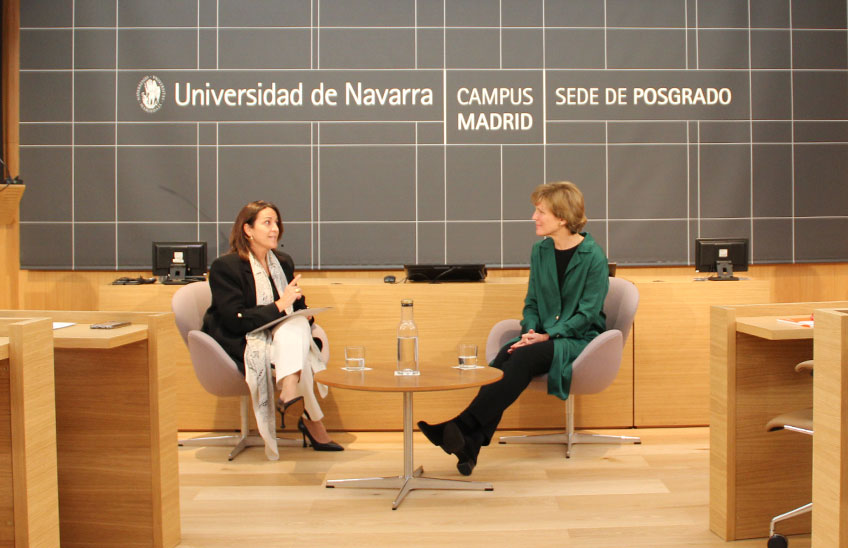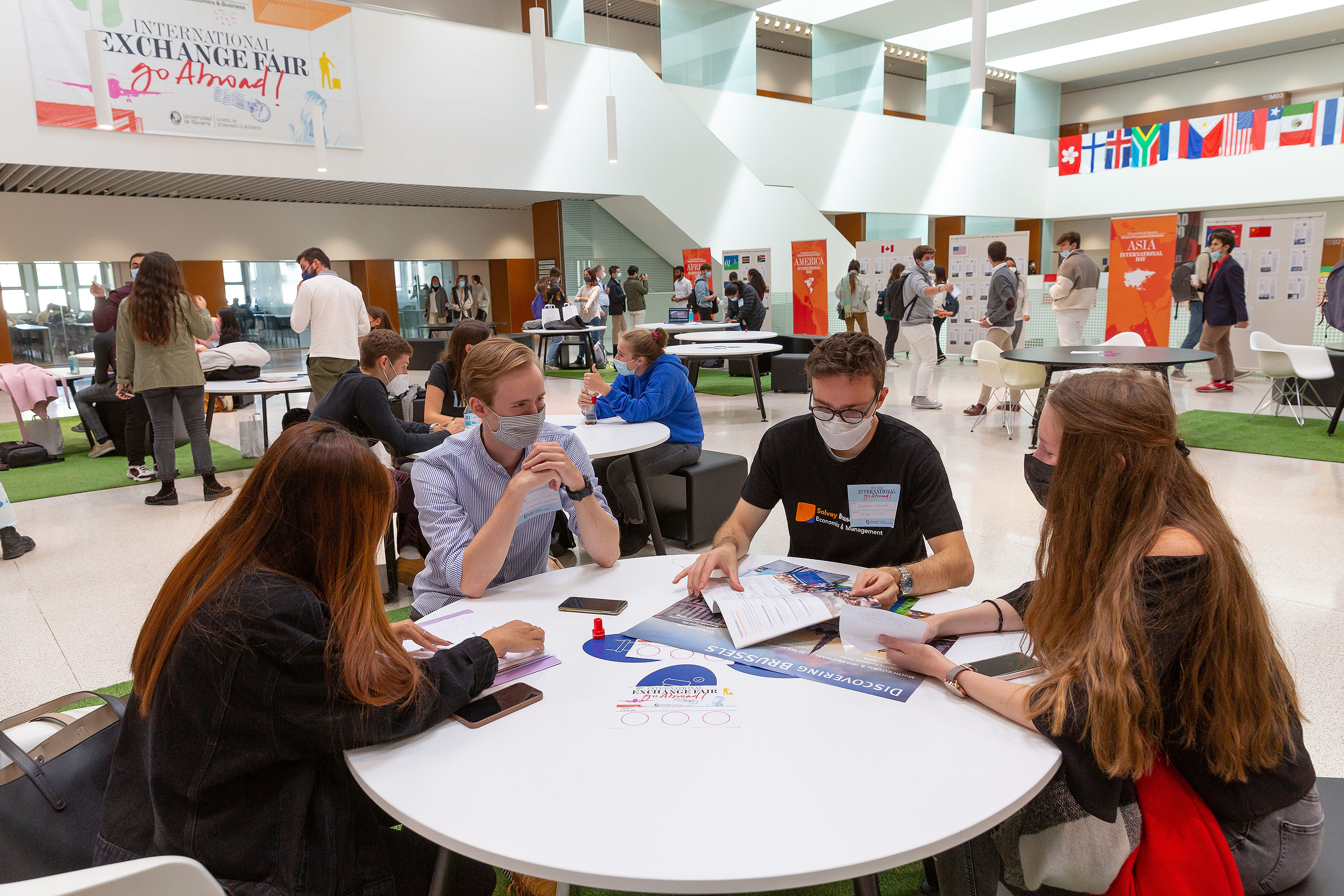The role of Christianity in contemporary cultural debates, topic of a new University Master's Degree
It will be taught at blended learning: at the campus of the academic center in Madrid and with online contents.
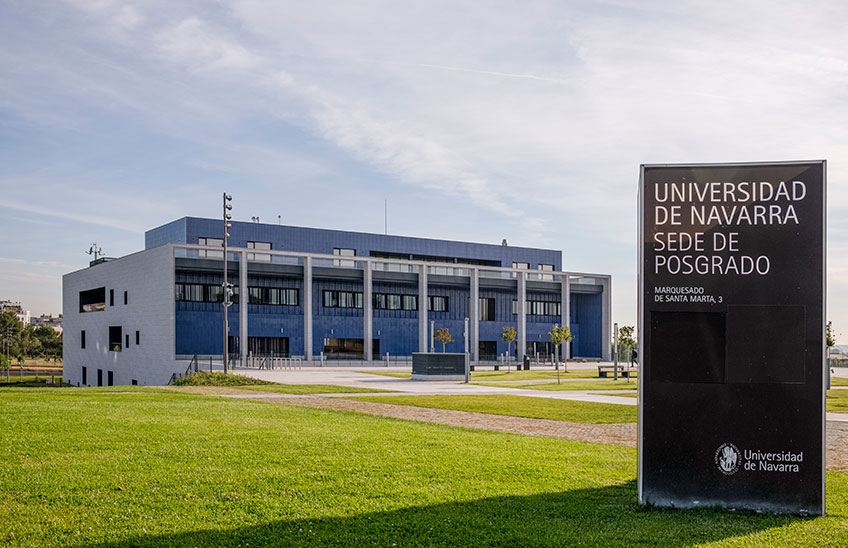
PhotoEstherLozano/University's postgraduate program
29 | 10 | 2021
Can religion and secularism coexist in public spaces? What are the Christian answers to the great scientific questions? What influence do history, politics and theology have on the cultural development ? These and other questions will be answered by the new Master's Degree in Christianity and Contemporary Culture that the University of Navarra will offer from the next academic year 2022-23.
"This Master's Degree arises from the need to obtain advanced knowledge to understand the problems and challenges of today's world in its intellectual, historical, social, scientific, artistic, literary, philosophical and theological aspects," explains Professor Mariano Crespo, director academic of the program. "It also aims to address the fundamental elements of the Christian understanding of contemporary culture on the basis of the dialogue between faith and reason." The postgraduate program is aimed especially at professionals in the field of Education, as well as people interested in deepening their understanding of the contributions of Christianity to the debates that arise in Philosophy, science, art and literature.
The transformation of society and the family, the challenges of technology or ecology, among the themes of the postgraduate program
The contents are structured around four modules: understanding today's world: historical and social keys; scientific worldview and religion in the 21st century; contemporary thought and transcendence; and the search for meaning in the arts and contemporary literature. Among other issues, topics such as May '68, Christianity after Vatican II, the transformation of society and the family, the dialogue between science and religion, current challenges of technology, the need for reason in the post-truth era, or ecology will be discussed. With a approach multidisciplinaryThe courses will be taught by more than 30 professors from various institutions, with extensive experience and research trajectory in the field of Humanities and Theology. Due to their modular and flexible nature, they can be taken independently and obtain specific specialization degrees.
Dependent on the School of Philosophy and Letters, and organized in partnership with the School of Theology, the Institute Core Curriculum, the Institute for Culture and Society (ICS) and the group Science, Reason and Faith (CRYF), it will take the following format blended learningThe courses will be taught one afternoon a week at the campus of the University of Navarra in Madrid and there will be online content, sessions and personalized tutorials.

